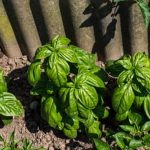Mulching is a common practice among gardeners to enhance the health and productivity of their vegetable gardens. It not only helps to retain moisture in the soil but also suppresses weeds and regulates temperature. When it comes to choosing the right type of mulch, cedar mulch is often considered for its natural appearance and pleasant aroma.
However, there have been debates about whether cedar mulch is beneficial or detrimental to vegetable gardens. In this article, we will delve into the potential effects of using cedar mulch in vegetable gardens, exploring its features, benefits, drawbacks, and alternative options.
Gardeners often use mulch in their vegetable gardens because it acts as a protective layer that shields the soil from extreme weather conditions while providing an ideal environment for plants to thrive. Cedar mulch, made from cedar tree bark or wood chips, has gained popularity due to its attractive fragrance and longevity. But what are its specific features and benefits? Understanding these aspects is crucial before deciding if cedar mulch is suitable for your vegetable garden.
On one hand, cedar mulch offers several advantages when used in vegetable gardens. It acts as a natural insect deterrent due to its strong scent, ensuring pests stay at bay. Additionally, it decomposes slowly compared to other organic materials, reducing the need for frequent replenishment.
Cedar mulch also creates an inhospitable environment for weed growth by suppressing weed seeds from germinating. With these benefits in mind, many gardeners opt for cedar mulch as an effective means of promoting plant growth in their vegetable gardens.
However, it is essential to consider both sides of the debate when evaluating the suitability of cedar mulch for your vegetable garden. While it may have its merits, there are potential drawbacks that should not be ignored. Cedar contains certain natural substances called allelochemicals that can inhibit plant growth and negatively impact the soil’s microorganisms.
These allelochemicals can be harmful to specific vegetable plants, affecting their overall health and productivity. As a result, it is crucial to weigh these potential risks before choosing cedar mulch for your vegetable garden.
In the following sections, we will delve deeper into the pros and cons of using cedar mulch in vegetable gardens, exploring alternative options, mitigating potential risks, and seeking expert insights from experienced gardeners. By considering all aspects of cedar mulch and its impact on vegetable gardens, you can make an informed decision about whether cedar mulch is bad or beneficial for your own gardening needs.
What is Cedar Mulch
Cedar mulch is a type of mulch made from the shredded bark of cedar trees. It is a popular choice for gardeners due to its various features and benefits. Understanding these features can help us evaluate whether cedar mulch is suitable for vegetable gardens.
Features
One of the key features of cedar mulch is its natural resistance to pests and insects. The strong aroma of cedar acts as a deterrent for many garden pests, including termites, ants, and slugs. This can be especially beneficial in vegetable gardens where these pests can cause damage to plants and crops.
Another feature of cedar mulch is its ability to regulate soil temperature and moisture levels. Cedar has natural properties that allow it to retain moisture in the soil, reducing evaporation and helping plants maintain adequate hydration. Additionally, it acts as insulation, keeping the soil warm during cooler seasons and protecting delicate roots from harsh temperatures.
Benefits
One of the primary benefits of using cedar mulch in vegetable gardens is weed suppression. Cedar mulch forms a thick layer on top of the soil, preventing sunlight from reaching weed seeds beneath. Without sufficient light, weeds struggle to germinate and grow, reducing the competition for nutrients between weeds and vegetable plants.
Furthermore, cedar mulch provides an attractive aesthetic appeal to gardens. Its reddish-brown color adds warmth and richness to garden beds, enhancing the overall visual appeal of the space. This can be particularly important for homeowners who want their vegetable gardens to be visually appealing while still productive.
The Pros of Using Cedar Mulch in Vegetable Gardens
Cedar mulch offers several benefits when used in vegetable gardens. Here are the pros of using cedar mulch:
- Natural Pest Repellent: One of the biggest advantages of cedar mulch is its natural pest-repellent properties. Cedar contains natural oils and compounds that act as a deterrent for insects, including termites, cockroaches, and ants. This can help reduce the risk of pest infestations in your vegetable garden.
- Weed Suppression: Cedar mulch acts as an effective barrier against weeds. By covering the soil with a layer of cedar mulch, you can prevent weed growth by blocking sunlight from reaching the weed seeds and smothering any existing weeds. This not only saves you time and effort on weeding but also reduces competition for water and nutrients among your vegetable plants.
- Moisture Retention: Another benefit of cedar mulch is its ability to retain moisture in the soil. The mulch layer acts as a protective barrier that slows down evaporation, keeping the soil consistently moist for longer periods. This can be particularly beneficial during hot and dry seasons when water conservation is crucial for healthy plant growth.
To maximize the benefits of using cedar mulch in your vegetable garden, it’s essential to ensure proper application techniques. Here are some tips:
- Apply a layer of cedar mulch around 2 to 3 inches thick, taking care to leave a small gap around the base of each plant to avoid moisture accumulation.
- Regularly monitor moisture levels in the soil beneath the mulch layer and water accordingly to maintain adequate hydration.
- Keep an eye out for signs of insect or pest infestations despite cedar’s repellent properties, as some pests may still be attracted to your vegetable garden.
While cedar mulch offers many advantages, it’s important to consider other factors before deciding if it’s right for your specific garden needs. In the next section, we will explore the potential drawbacks and risks of using cedar mulch in vegetable gardens.
The Cons of Using Cedar Mulch in Vegetable Gardens
Slow Decomposition
One of the main drawbacks of using cedar mulch in vegetable gardens is its slow decomposition rate. Cedar wood contains natural oils and resins that make it resistant to decay, which means that it takes longer for cedar mulch to break down compared to other types of organic mulch. While this may be beneficial when used in landscaping and ornamental beds, it can be problematic in vegetable gardens where the soil needs frequent replenishment of organic matter.
The slow decomposition of cedar mulch can lead to a buildup of mulch on top of the soil, preventing water and nutrients from reaching the roots of plants. This can result in poor plant growth, reduced yields, and increased susceptibility to diseases and pests.
Gardeners who choose to use cedar mulch in their vegetable gardens need to be mindful of this slow breakdown process and regularly incorporate new organic matter into the soil to compensate for the lack of nutrient replenishment.
Nitrogen Depletion
Another disadvantage associated with cedar mulch is its tendency to deplete soil nitrogen levels. Cedar wood contains chemical compounds called thujaplicins, which have natural antimicrobial properties that help protect the tree against fungi and insects. However, when these compounds come into contact with moist soil, they can interfere with nitrogen availability for plants.
Soil microorganisms play a crucial role in breaking down organic matter and releasing nitrogen into a form that plants can readily absorb. Thujaplicins released by decomposing cedar mulch can inhibit the activity of these microorganisms, resulting in reduced nitrogen availability for vegetable plants. This nitrogen depletion can cause nutrient deficiencies and stunted growth in vegetables such as leafy greens, which are particularly sensitive to low nitrogen levels.
Acidic Soil Conditions
Cedar mulch has acidic properties that can alter the pH balance of the soil over time. While some vegetables prefer slightly acidic soil, excessive acidity can be detrimental to plant health and growth. Acidic conditions limit the availability of essential nutrients, such as phosphorus, potassium, and calcium, which are crucial for proper vegetable development.
Gardeners who opt for cedar mulch should regularly monitor the pH levels of their soil and amend it accordingly to maintain optimal conditions for vegetable growth. This may involve applying lime or other pH-raising amendments to neutralize the acidic effects of cedar mulch. However, this additional effort and expense should be considered when deciding whether cedar mulch is the right option for a vegetable garden.
Potential Risks for Vegetable Gardens
Cedar mulch is widely used in gardens for its numerous benefits, such as weed suppression, moisture retention, and insect repelling properties. However, there are some potential risks associated with using cedar mulch in vegetable gardens that gardeners should be aware of. This section will explore the drawbacks of cedar mulch and how they can impact vegetable gardens.
One of the main concerns with cedar mulch is its allelopathic properties. Allelopathy refers to the natural ability of plants to release chemicals that inhibit the growth of other nearby plants. Cedar contains natural oils and compounds like thujone and cedrol, which have been found to have allelopathic effects on certain vegetables.
These compounds can hinder seed germination or stunt the growth of vegetable plants when applied as a thick layer of mulch. It is important to note that not all vegetables are equally affected by these chemicals, so it’s necessary to research which types are sensitive before using cedar mulch.
Another drawback of cedar mulch in vegetable gardens is its potential to alter soil pH levels over time. Cedar has acidic properties, which can gradually lower the pH level of the soil if applied continuously over several seasons. This can be problematic for vegetables that thrive in more alkaline conditions. Regular monitoring of soil pH and amending it as needed with lime or other suitable amendments can help mitigate this risk.
Moreover, cost and availability may also be considered as drawbacks when using cedar mulch. Compared to other organic mulches like straw or wood chips, cedar mulch can be more expensive depending on your location and availability. It may not always be cost-effective for larger vegetable gardens or those on a tight budget.
It is important for gardeners to weigh the benefits and drawbacks when considering using cedar mulch in their vegetable gardens. Understanding these potential risks will help make informed decisions about whether or not cedar mulch is suitable for their specific gardening needs.
| Drawback | Impact on Vegetable Gardens |
|---|---|
| Allelopathic properties | Inhibition of seed germination and growth of certain vegetables |
| Soil pH alteration | Potential decrease in pH over time, which may negatively affect alkaline-loving vegetables |
| Cost and availability | Higher cost compared to other organic mulches, potential limited availability depending on location |
Alternatives to Cedar Mulch
One of the drawbacks of using cedar mulch in vegetable gardens is that it can be expensive. Cedar mulch tends to be pricier than other types of mulch, which can make it less appealing for gardeners on a budget. Additionally, cedar mulch has a strong aroma that some people find unpleasant. This fragrance can also deter certain pests, such as insects and rodents, but it may not be a desirable smell for everyone.
Another factor to consider is the potential environmental impact of using cedar mulch. While cedar mulch is often advertised as being biodegradable and renewable, there are concerns about deforestation and the sustainability of sourcing cedar trees for mulch production. Some experts argue that using locally sourced organic materials or compost as mulch can be a more sustainable alternative.
Fortunately, there are several other options available for vegetable gardeners who prefer not to use cedar mulch. Here are some alternatives to consider:
- Straw: Straw is an affordable option that can help with weed suppression and moisture retention in the soil. It’s important to make sure that the straw you choose is free from seeds or contaminants.
- Grass Clippings: If you have access to freshly cut grass clippings, they can make an excellent organic mulch for your vegetable garden. Just make sure that the grass hasn’t been treated with any herbicides or pesticides.
- Compost: Using compost as mulch not only helps improve soil health but also adds nutrients to your plants. It’s a great way to recycle kitchen scraps and yard waste while providing a beneficial layer of protection for your vegetable garden.
- Wood Chips: Wood chips from hardwood trees like oak or maple can work well as mulch in vegetable gardens. They break down slowly, provide good moisture retention, and help prevent weed growth.
| Mulch Option | Benefits |
|---|---|
| Straw | Affordable, weed suppression, moisture retention |
| Grass Clippings | Organic, free (if you have access), moisture retention |
| Compost | Improves soil health, adds nutrients, recycling option |
| Wood Chips | Slow breakdown, moisture retention, weed prevention |
Overall, while cedar mulch has its benefits for vegetable gardens, it’s important to consider the drawbacks and explore alternative mulch options. By choosing the right mulch for your garden’s specific needs and considering factors like cost, sustainability, and personal preference, you can find the perfect mulch that will help your vegetable garden thrive.
Tips for Safely Using Cedar Mulch in Vegetable Gardens
Using cedar mulch in vegetable gardens can provide numerous benefits, but it is essential to take certain precautions and follow best practices to ensure the safety of your plants and crops. Here are some valuable tips for safely using cedar mulch in your vegetable garden and mitigating potential risks:
- Choose organic and natural cedar mulch: When selecting cedar mulch for your vegetable garden, opt for organic and natural options that have not been treated with chemicals or pesticides. This ensures that harmful substances do not leach into the soil and ultimately into your vegetables.
- Use a thin layer of mulch: Applying a thin layer of cedar mulch can help minimize the risk of nitrogen depletion in the soil. Too thick of a layer can create a barrier that prevents water and nutrients from reaching the roots of your plants, leading to stunted growth.
- Allow for proper air circulation: Cedar mulch has a tendency to form a dense mat as it decomposes, which can hinder air circulation around plant stems. To prevent this, make sure to leave sufficient space around the base of each plant when applying cedar mulch.
- Monitor soil moisture levels: Cedar mulch helps retain moisture in the soil, but it can also hinder water penetration if it becomes compacted. Regularly check the moisture levels in your garden beds and adjust watering accordingly to prevent over-watering or under-watering.
- Rotate crops regularly: To avoid any potential buildup of toxins from cedar mulch, practice crop rotation every year by changing where you plant different vegetables in your garden beds. This reduces the risk of nutrient imbalances or accumulation of specific compounds that could negatively affect certain crops.
By following these tips, you can safely use cedar mulch in your vegetable garden without compromising the health and productivity of your plants. Remember to always monitor your plants closely for any signs of distress or nutrient deficiencies, as different varieties may have varying sensitivities to cedar mulch.
Expert Insights
Gardeners’ experiences and opinions on cedar mulch in vegetable gardens can provide valuable insights into the pros and cons of using this type of mulch. Many gardeners have found success with cedar mulch and praise its benefits, while others have encountered challenges and drawbacks.
One of the main advantages that gardeners highlight is the natural insect-repelling properties of cedar mulch. Cedar contains natural oils that act as a deterrent for pests such as ants, termites, and slugs.
This can be particularly beneficial for vegetable gardens, as these pests can cause significant damage to crops. Gardeners also appreciate that cedar mulch is long-lasting and does not break down quickly, meaning they don’t have to replenish it as frequently as other types of organic mulches.
However, some gardeners have raised concerns about cedar mulch affecting soil pH levels. Cedar contains tannins which are known to increase soil acidity over time. While this may benefit certain types of plants that prefer acidic soil conditions, it can be detrimental to others. It is important for gardeners to carefully monitor their soil pH levels when using cedar mulch and consider the specific needs of their vegetable crops.
Another drawback mentioned by some gardeners is cedar’s potential to compete with plants for nitrogen resources. Cedar has a high carbon-to-nitrogen ratio, meaning that when it decomposes, it requires more nitrogen from the soil to break down effectively. This can result in nitrogen depletion in the surrounding area which may affect the growth and health of vegetables.
Final Verdict
After thoroughly exploring the features, benefits, drawbacks, and potential risks of using cedar mulch in vegetable gardens, it is time to reach a final verdict on whether cedar mulch is bad for vegetable gardens. The answer to this question ultimately depends on several factors and considerations.
One of the main advantages of using cedar mulch in vegetable gardens is its ability to deter pests. The natural oils and compounds found in cedar act as a repellent for many common garden pests such as mosquitoes, ants, and slugs. This can help protect your vegetables from destructive insects without relying on harmful chemicals.
Furthermore, cedar mulch is biodegradable and can improve soil health over time. As it breaks down, it enriches the soil with organic matter, nutrients, and beneficial microorganisms. This can lead to improved water retention, increased fertility, and enhanced overall plant growth.
However, there are also some potential drawbacks to using cedar mulch in vegetable gardens. One significant concern is that certain varieties of cedar contain natural chemicals called allelopathic compounds. These compounds can inhibit the growth of other plants by interfering with their germination or root development. Therefore, it is essential to use cedar mulch sparingly or opt for types of cedar that have lower levels of allelopathic compounds.
Remember to consider factors such as local climate conditions, availability of materials, and personal preferences when making your decision. Ultimately, finding the perfect mulch for your vegetable garden involves experimentation and understanding the unique needs of your plants.
Conclusion
In conclusion, the use of cedar mulch in vegetable gardens can have both positive and negative effects. While cedar mulch offers many benefits such as weed suppression, moisture retention, and pest deterrent properties, it also comes with potential risks. These risks include nitrogen depletion, acidification of the soil, and the release of harmful chemicals.
Therefore, it is crucial for gardeners to consider these factors before deciding to use cedar mulch in their vegetable gardens. If you choose to use cedar mulch, it is important to take precautions to mitigate potential risks. This includes properly composting or aging the mulch before application to reduce its acidity and potential damage to soil health.
Alternatively, there are other types of mulches that can be used in vegetable gardens. Organic options such as straw, grass clippings, or shredded leaves provide similar benefits without the potential risks associated with cedar mulch. These alternatives can still help retain moisture, suppress weeds, and improve soil health.
Frequently Asked Questions
Is it OK to put cedar mulch around vegetable plants?
It is generally not recommended to use cedar mulch around vegetable plants. While cedar mulch can offer benefits such as deterring pests and preventing weed growth, it also contains natural compounds called allelochemicals that can potentially inhibit the growth of some plants, including vegetables.
These allelochemicals may interfere with the germination, development, or overall health of your vegetable plants. Therefore, it is advisable to choose a more suitable mulch option for your vegetable garden.
Will cedar mulch hurt tomato plants?
Cedar mulch may have negative effects on tomato plants. Although cedar mulch can provide excellent insulation and moisture retention properties for some plants, tomatoes tend to have a higher sensitivity to the allelochemicals present in cedar.
These compounds may impede the growth and vigor of tomato plants, potentially leading to stunted growth or decreased fruit production. To avoid any potential harm to your tomato plants, it is best to opt for a different type of mulch that will promote their optimal growth and productivity.
When should you not use cedar mulch?
There are specific scenarios when using cedar mulch should be avoided. Firstly, if you are growing plants that are naturally sensitive or intolerant to cedar’s allelopathic properties like certain herbs or legumes, it would be wise to steer clear of cedar mulch altogether. Secondly, if you have acidic soil conditions or your desired plants require alkaline soil pH levels, the natural acidity of cedar mulch could further lower the pH level and potentially hinder plant growth.
Lastly, if you are experiencing water retention issues in your garden due to poor drainage or heavy rains, cedar mulch might exacerbate the problem by trapping excess moisture near plant roots instead of allowing proper airflow and drainage around them. In such cases, opting for a different type of mulch appropriate for your specific needs would be advisable.

If you’re looking to get into vegetable gardening, or are just looking for some tips on how to make your current garden better, then you’ve come to the right place! My name is Ethel and I have been gardening for years. In this blog, I’m going to share with you some of my best tips on how to create a successful vegetable garden.





